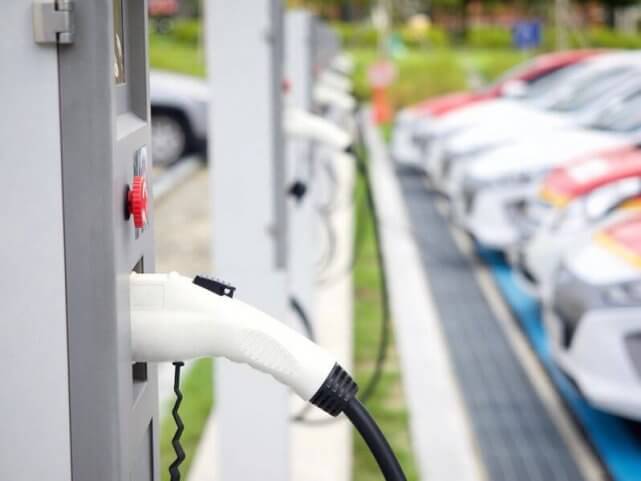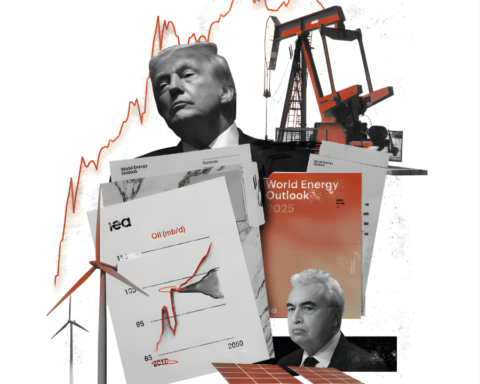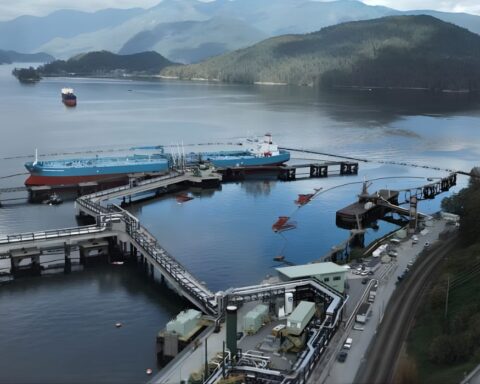“We will need fossil fuels for decades to come,” or so goes the conventional wisdom. People in developing countries are buying more vehicles, so we need to invest in growing our oil sector – especially the oil sands. But is this logic sound? Arguing that “we will need oil for decades to come” says nothing about oil prices. We’d need to know that high prices will remain high for the next 20 to 30 years to justify new projects.
No one disputes that there will be vestigial demand for fossil fuels for decades to come. No one disputes that low oil prices would severely damage the oil sands. No one disputes that it will be decades before the transition to electrified transport is complete. But does the transition to EVs need to be complete before it contributes to chronically low oil prices? Importantly, what will the oil supply-demand balance look like later in this decade, and in future decades? Will prices be high enough to sustain one of the more expensive sources of oil? No one will dispute that someday EVs will threaten oil demand and thus prices.
Today, annual EV sales data are used to assess and dismiss the threat. Looking at annual sales data suggests the risk to the sector is years away – but that is looking at where the puck is, not where it will be.
Looking only at annual EV sales data means failing to recognize that once an EV enters service, it remains in use for a decade or more. Every fossil-fuelled vehicle displaced by an EV permanently removes oil demand for that vehicle. Cumulative EVs is the critical factor, not annual sales. Specifically, how many EVs are required to impact crude oil prices? And when might that occur? Is it decades into the future? Or is it imminent? How much does a small drop in oil demand affect price?
A 2% oil-supply surplus caused a 70% drop in oil prices between 2014 and 2015. That surplus was primarily due to Saudi Arabia flooding the market with crude oil. They are doing the same thing today, which, compounded by COVID-19, is causing acute problems. Electrification of transport is chronic, however, and its effect on oil prices will increase over time until a transition is virtually complete.
So how many EVs could cause a small oil-supply surplus? A report published by the Bowman Centre for Sustainable Energy suggests the answer: about 40 million EVs worldwide. And, disruptively, it could happen by mid-decade.
So, what to do?
First, we need to recognize the severity of problems facing the oil-producing provinces. Jobs are disappearing, and companies are under financial stress, leading to ripple effects across their economies and attendant social problems. These challenges are being imposed on Canada by global forces; our government leaders cannot change this global shift, regardless of political rhetoric.
Oil-producing provinces, the federal government and Canadians need to develop and implement a transition plan. An action plan designed for oil-sector workers and society at large. A plan that positions the oil sands as a resource that contributes to society and our economy as the 21st century unfolds.
A detailed, equitable, data-driven and realistic transition plan will recognize the value of bitumen for non-fuel uses. In addition, such a plan will embrace electrification of transport as an opportunity. Visionary, courageous and cooperative leadership is required to drive technical and social solutions to ensure that the provinces, citizens and Canada build back better.
What happens if we are wrong? Nothing – there is no downside. Implementing a transition plan will create jobs and wealth in addition to those in a scenario where the oil sands prosper as in the past.
Ed Brost is a professional chemical engineer with over 35 years experience in the energy sector with Shell, Ontario Hydro and Atomic Energy of Canada. Ed is currently managing director of Innovation and Sustainable Development with Carbovate Development Corp. and volunteers his time as an associate with a non-profit, the Bowman Centre for Sustainable Energy.







